
LIFT Programs
As an integral component of the comprehensive RecoverBridge model, supportive housing plays a crucial role in addressing long-term outcomes. This approach is guided by Social Determinants of Health and community health indicators that are specific to the McLaren population, which emphasize the critical need for supportive services.
The health close-up survey further highlights the intersectionality of physical and mental health conditions experienced by residents, underscoring the importance of addressing both aspects. The analysis of acuity levels provides valuable insights into the specific types of services required, aligning with the recovery model and tailoring interventions to the unique needs of McLaren residents.
Through this comprehensive and person-centered approach, the LIFT initiative aims to create a supportive housing environment that promotes well-being, fosters recovery, and empowers residents towards positive long-term outcomes. By considering the holistic well-being of residents and addressing their individual needs, the LIFT initiative strives to create a supportive and empowering environment that facilitates their overall recovery and enhances their quality of life.
Practically, this model takes a non-traditional approach to supportive housing and envisions an SRO Integrated Housing Hub. It develops an integrated, multi-disciplinary health services hub to be piloted within the premises.
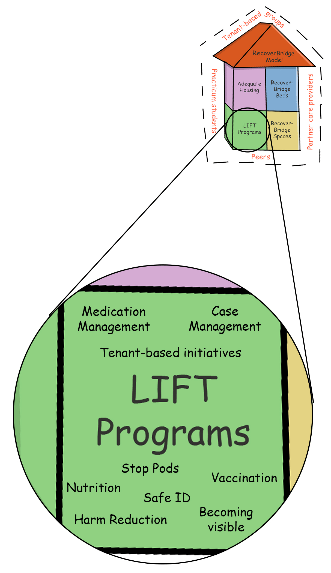
Programs
Case Management
The LIFT patient-centered case management program is a compassionate and tailored approach to healthcare support. The program puts patients at the center of their care, ensuring that they receive the resources and attention they need to recover and thrive. Our experienced case managers work closely with patients to understand their unique needs, goals, and challenges, and develop a personalized care plan that meets their individual needs. With a focus on empowering patients to take charge of their own health and well-being, our program is dedicated to delivering exceptional care and support.
Each client’s case management plan aims to be holistic and built upon a comprehensive intake assessment that encompasses a satisfaction survey, a general assessment, an acuity questionnaire evaluating sixteen life categories, and the client’s strengths and resources. The goals of the client’s case management plan are SMART designed in order to ensure success likelihood.
The program has been made possible through a powerful partnership between EHI and Sara Riel Inc. In addition, the case management plan is enhanced through, if needed, the involvement of public agencies such as the Program of Assertive Community Treatment (PACT), the Forensic Assertive Community Treatment (FACT), the Health Outreach and Community Support (HOCS), and the WRHA ACCESS Downtown.
Nutrition program
A nutrition program in the McLaren Hotel in Winnipeg has been implemented. Initially, the program was by the agency staff and supplied by one food provider. The nutrition program then evolved to be volunteer-run. EHI built capacity by securing additional food providers, mobilizing reliable community volunteers and recruiting hotel residents to volunteer (“peers”), and partnering with a commercial food preparation facility.
The key activities related to the intervention are:
- Continuously assessing the characteristics of the food environment (accessibility, desirability, and quality)
- Determining all aspects of the supply chain (products, processes, people, policies)
- Implementing and improving processes of all stages of the supply chain (input, production, handling, storage, preparation, transport, and delivery)
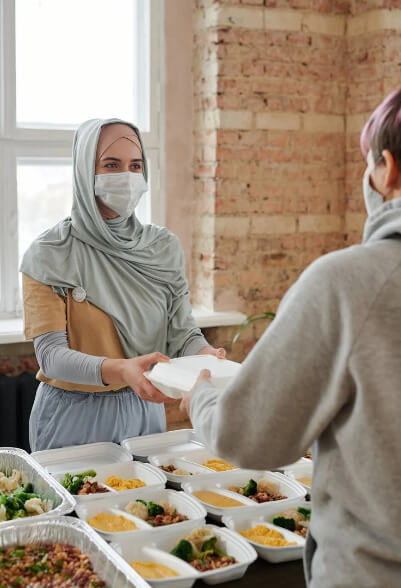
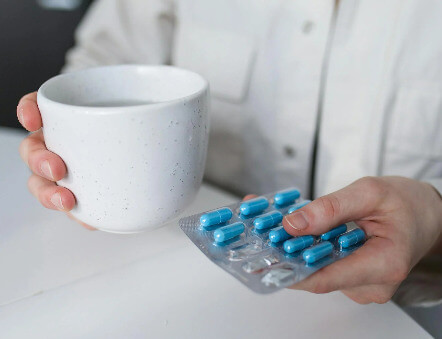
Medication Management
The needs assessment demonstrated that 28% of the McLaren hotel residents are non-compliant in terms of prescribed medicines. In other words, more than a quarter of the people in the hotel have issues in taking their medicine as prescribed. EHI’s medication management program is a comprehensive system designed to help individuals effectively track and manage their medications. This program helps people keep track of their prescriptions, dosages, and schedules, ensuring they take the right medication at the right time. It also provides reminders and alerts, reducing the chances of missed doses or interactions with other medications. With the help of a medication management program, individuals can improve their overall health and reduce their risk of adverse reactions or complications from their medications. This program is the result of a partnership between EHI and Seven Oaks Pharmacy.
Vaccination Clinics
The vaccination clinics organised by EHI represent a public health answer to EHI clientele’s medical needs. During this event, a team of nurses (from the Public Health department of the Winnipeg Regional Health Authority) come on site with all the necessary supplies and administer, door-to-door, the vaccines to the hotel residents. This team uses their computer to access the client’s vaccination passport and, hence, determine what kind of vaccine he/she is eligible for.
Equal Housing Initiative supports the care team by doing the event advertisement, reaching out to participants and filling out their intake forms, and providing food to the residents. On average, a vaccination clinic is held every second month.
The program has been made possible through a partnership between EHI and the Public Health department of the Winnipeg Regional Health Authority.
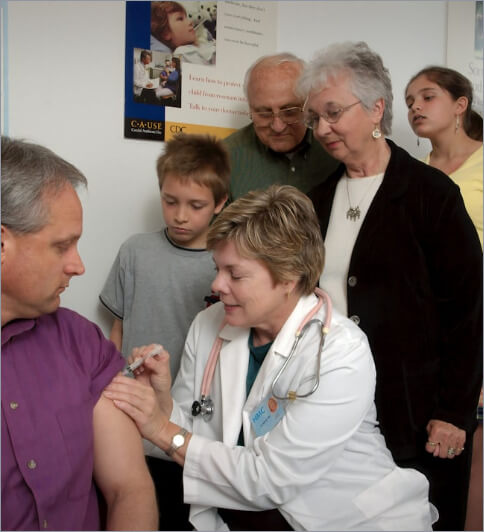
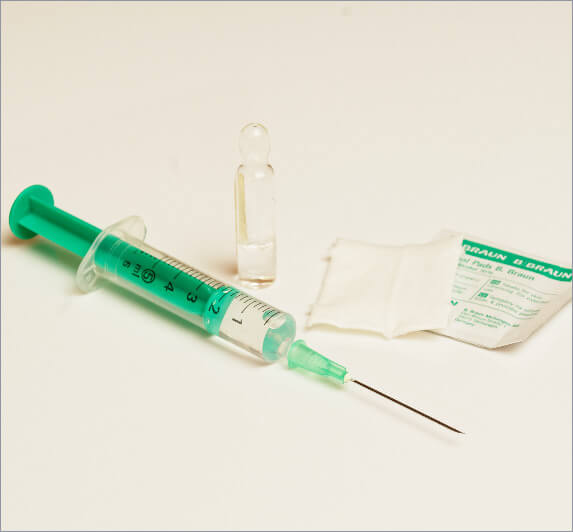
Harm Reduction Program
While the case management team is setting the goal to bring the client mindset to “seek help” and are performing wellness checks on high acuity residents, harm reduction activities are necessary to reduce the risk of self-harm and others. Harm reduction is considered an evidence-based approach to addressing substance use. It is supported by a large body of research that demonstrates its effectiveness in reducing the harms associated with substance use, such as overdose deaths and the spread of infectious diseases.
Equal Housing Initiative activities around harm reduction are the supplies storage, the program advertisement, the kits preparation, and distribution. The supplies are offered by a WRHA-affiliated agency called Street Connections.
Furthermore, EHI is distributing safe sex supplies and HIV self-tests to reduce the spread of Sexually Transmitted and Blood Borne Infections (STTBI). The supplies are offered by the Sexuality Education Resource Centre (SERC).
Safe ID
EHI’s needs assessment that “Support system” is one of the five impaired life categories, in terms of prevalence. Clients without support system do not have the same ability to navigate the health (and para health) care system. In any case, requiring identification to access social services helps to ensure that the right people are accessing the services they need, that resources are being used appropriately, and that the services are operating effectively and efficiently.
In addition, EHI acts as a referral center for Citizen’s Bridge; agency that offers free access to a person’s birth certificate or bank account. Pragmatically, Equal Housing Initiative fills out and execute a referral sheet, send it to Citizen’s Bridge and notify the client of the appointment date and time.

Community-Based Tenant Initiatives
Living in an SRO is synonymous with living with a continuous “eviction” sword of Damocles over the head as a lease agreement does not exist. EHI’s Needs Assessment demonstrated a high prevalence and acuity in terms of addictions and mental health within the McLaren community. These characteristics represent two well-established pathways to homelessness (Chamberlain & Johnson, 2011). Furthermore, most of the residents (58%) indicated they came from better housing hence the reality that SRO residents are on a downward trajectory to homelessness and eviction. Moreover, most of the McLaren population, as with residents of other SRO’s, do not have a support system in place, which makes defending their rights difficult and means that their housing remains insecure.
To address these characteristics, the Integrated Housing Hub aims to prevent evictions by developing and maintaining a “No Eviction” culture, implementing prevention programs, and by offering a series of holistic, tenant-centered and culturally and spiritually appropriate support services.
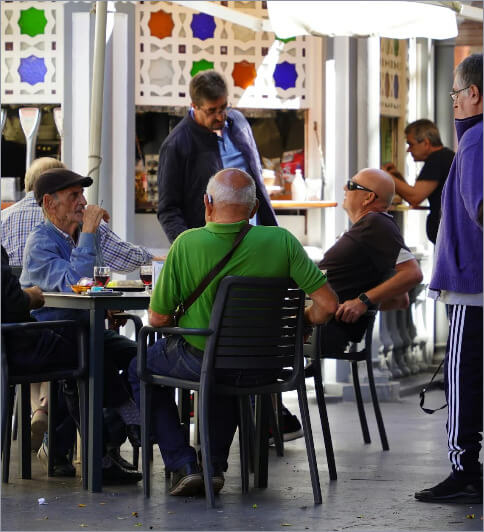

The SRO sector in Winnipeg is quite stale and lacks advocates to speak on behalf of residents living in these insecure conditions. To paraphrase the “Greater Involvement of People with HIV,” people living in SRO are entitled to the same human rights as everyone else, including the right to access appropriate services, adequate housing, self-determination and participation in decisions affecting their quality of life, and freedom from discrimination.
The Hub includes a series of tenant-based initiatives:
- a tenancy board,
- a peer advocacy and education program,
- a peer-building subcommittee.
The projected outcomes of the tenant-based initiatives are to eradicate eviction, educate the Winnipeg community about the realities and prevalence of the single-room occupancy sector, and to optimize the care of the populations living in these premises.
Becoming Visible
EHI is advocating for single-room occupancy units (SROs) as a solution to hidden homelessness, which includes those living in inadequate, unsafe, or overcrowded housing situations. By preserving and expanding the SRO sector, EHI aims to increase access to safe and affordable housing for those experiencing hidden homelessness. Through policymaking, community outreach, and education, EHI has secured 42 partners and supporters, focusing on educating the public about inadequate housing and implementing supportive “Brick and Mortar” solutions. EHI also advocates for a trans-jurisdictional approach to solve the SRO sector, involving multiple levels of government, community organizations, healthcare providers, and social service agencies.

